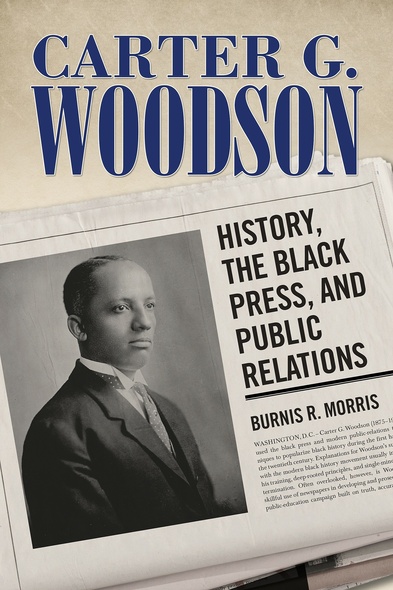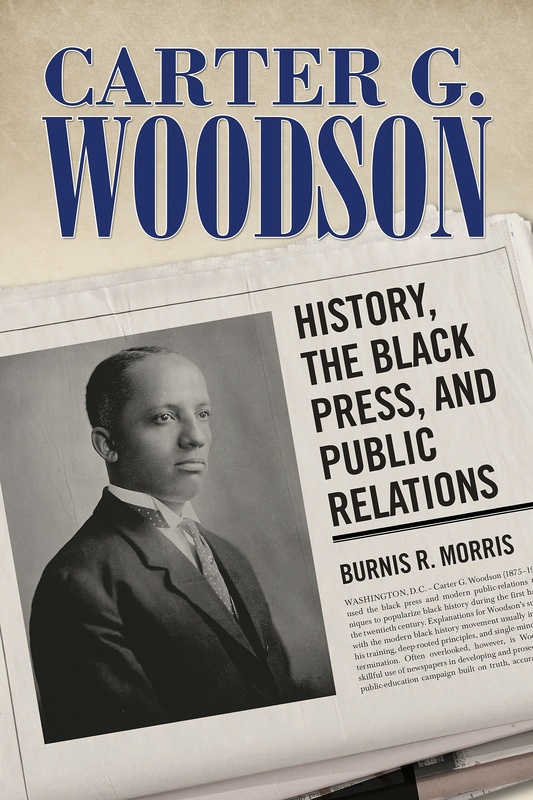
Carter G. Woodson
History, the Black Press, and Public Relations
This study reveals how historian Carter G. Woodson (1875-1950) used the black press and modern public relations techniques to popularize black history during the first half of the twentieth century. Explanations for Woodson’s success with the modern black history movement usually include his training, deep-rooted principles, and single-minded determination. Often overlooked, however, is Woodson’s skillful use of newspapers in developing and executing a public education campaign built on truth, accuracy, fairness, and education. Burnis R. Morris explains how Woodson attracted mostly favorable news coverage for his history movement due to his deep understanding of the newspapers’ business and editorial models as well as his public relations skills, which helped him merge the interests of the black press with his cause.
Woodson’s publicity tactics, combined with access to the audiences granted him by the press, enabled him to drive the black history movement—particularly observance of Negro History Week and fundraising activities. Morris analyzes Woodson’s periodicals, newspaper articles, letters, and other archived documents describing Woodson’s partnership with the black press and his role as a publicist. This rarely explored side of Woodson, who was often called the "Father of Black History," reintroduces Woodson’s lost image as a leading cultural icon who used his celebrity in multiple roles as an opinion journalist, newsmaker, and publicist of black history to bring veneration to a disrespected subject. During his active professional career, 1915-1950, Woodson merged his interests and the interests of the black newspapers. His cause became their cause.
Through this book, Morris recuperates Woodson’s rightful place in US journalism history and the field of public relations. . . . Morris offers a fresh take on Woodson’s life and activism, unearthing his role as a skilled publicist promoting and popularizing Black history through the press.
Morris’s work represents a breakthrough in taking Carter G. Woodson seriously as a personality and an institution builder. Most notably we learn how he used the press to transform the Association for the Study of Negro Life and History into the force that reshaped the celebration of Negro History, turning it into the most vibrant celebration of public history in America. A must-read for anyone who wants to understand Woodson.
Burnis R. Morris is the Carter G. Woodson Professor in Marshall University’s W. Page Pitt School of Journalism and Mass Communications, where he has taught courses in reporting, editing, diversity, mass media history, and public relations. He also created and directed for more than a decade The Fourth Estate and the Third Sector, a national training program for journalists who cover tax-exempt organizations and philanthropy.




